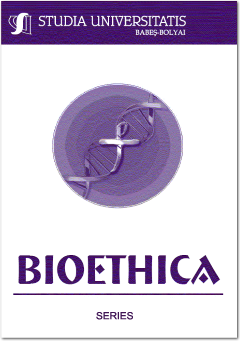CONSEQUENCES OF UNIVERSITY STUDENT’S INADEQUATE NUTRITION ON PHYSICAL AND PSYCHOLOGICAL WELL-BEING DURING ADULTHOOD: A PUBLIC HEALTH CONCERN
CONSEQUENCES OF UNIVERSITY STUDENT’S INADEQUATE NUTRITION ON PHYSICAL AND PSYCHOLOGICAL WELL-BEING DURING ADULTHOOD: A PUBLIC HEALTH CONCERN
Author(s): Lavinia-Maria Pop, Magdalena IorgaSubject(s): Ethics / Practical Philosophy, Evaluation research, Health and medicine and law
Published by: Studia Universitatis Babes-Bolyai
Keywords: student; eating behavior; adulthood; nutrition; transition; public health; eating disorders;
Summary/Abstract: A balanced diet is important for development and maintenance of physical and mental health throughout the life, especially during this period of study. Eating behavior undergoes changes in this transition from adolescence to young adulthood, changes that can have a significant impact on the development of diseases or eating disorders later in life. This paper aims to analyze the main social and psychological factors that influence students’ eating habits (such as: food taste, time, stress, physical activity, budget, accessibility to healthy foods, nutritional attitudes, social influences, female gender, coffee, alcohol and tobacco consumption, acculturative stress and religion), what nutritional risks these development stages entail, as well as the contribution of public health in the prevention and treatment of eating disorders. In conclusion, the transition to another environment is likely to change the eating behaviors that will be maintained in adulthood. Thus, we need prevent programs to fight against unhealthy eating habits among students, in order to head off an increasing prevalence of overweight and obesity later in life.
Journal: Studia Universitatis Babes-Bolyai - Bioethica
- Issue Year: 64/2019
- Issue No: 1-2
- Page Range: 41-56
- Page Count: 16
- Language: English

